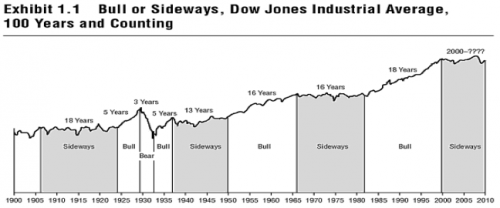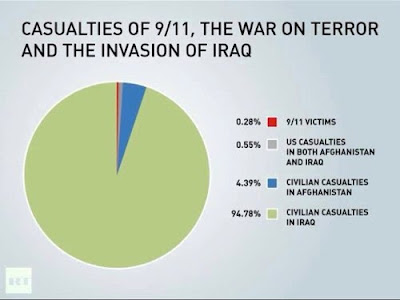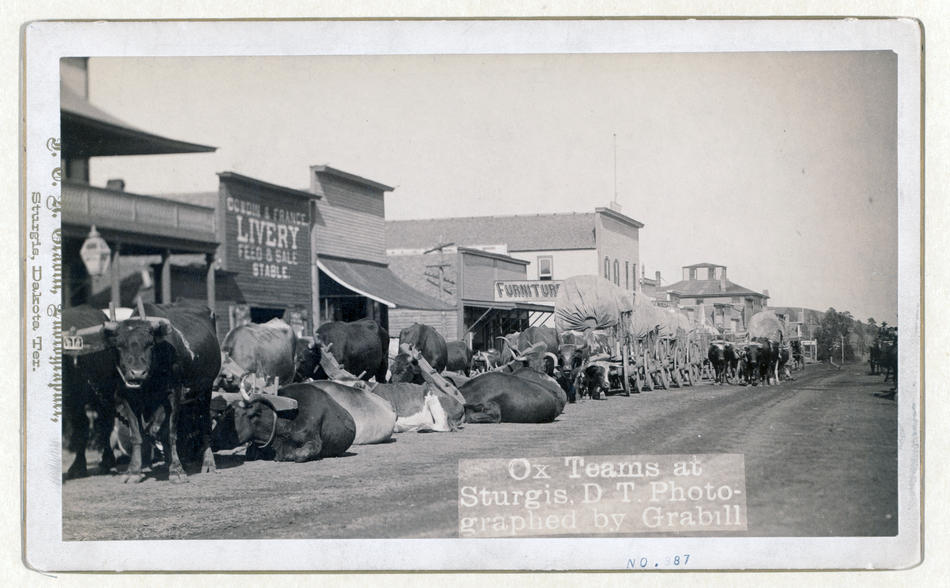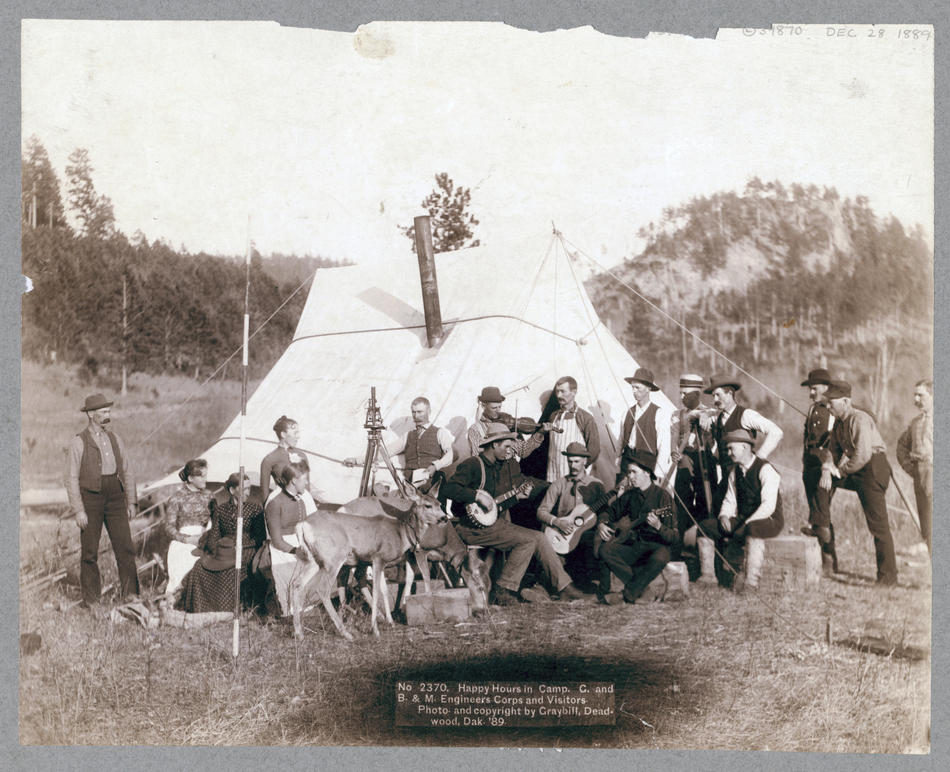
“Models work when they are appropriate for the particular circumstance, but some of the best investment judgments over time have come when people recognized that models derived in other periods were broken or not directly relevant.” –Abby Cohen (Goldman Sachs)
A Reader’s Commentary and Advice
I wanted everyone to see this reader’s post. My point of view is biased, narrowly focused and skewed. I seek other, contrary theses, but we are all human with our foibles. Others make a great contribution for sharing their thoughts and knowledge to help us learn. THANKS.
Shaun:
Hi, I work on wall street and can maybe offer an insight. I worked on the Sell- side (major broker dealers) for several years and now at a hedge fund. As per your note above, don’t consider Wall Street unless you think you will absolutely love it. As you correctly state, the whole business is massively over-staffed. The growth is over, and headcount cuts will continue for years. It’s really ugly. Also, people seem to be attracted to the money and meritocracy, which is nice. People definitely underestimate how much luck is involved in doing well in that environment. I speak as one who has been particularly lucky. You would think, being smart thoughtful and hardworking are prerequisites of doing well. And you would be wrong. It primarily comes down to luck. so as long as you are honestly willing to work crazy hours, often for nasty people who may not advance your cause for 6-7 years, then don’t do it. And most importantly be realistic about what is likely to occur. Working 80 hours a week for horrible people is much easier said than done. Be honest with yourself.
A great book on being a banker on the street is “Monkey Business”.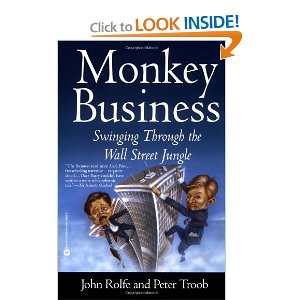 the investment banking side has not really changed since this was written. the sad part is that the trading/sales side has become much more like that also. Most people will not make it to the top. And most of the people at the top you would not admire. I would recommend anyone who is considering the street read monkey business and the opening chapter or two of Einhorn’s Fooling Some of the People All of the Time
the investment banking side has not really changed since this was written. the sad part is that the trading/sales side has become much more like that also. Most people will not make it to the top. And most of the people at the top you would not admire. I would recommend anyone who is considering the street read monkey business and the opening chapter or two of Einhorn’s Fooling Some of the People All of the Time 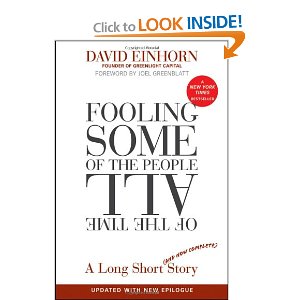 which speaks to the same thing.
which speaks to the same thing.
All that being said, im not sure being on the Sell-side is a great or even good place to start for value investing. The knowledge you get in banking is easily learned elsewhere with self-study. On the trading side, I don’t think you will get anything valuable (except for how to asses and manage liquidity) unless you are trading something complicated in fixed income – but that is dying too. The one place you may pick up very valuable and transferable skills is on a distressed desk. So if value is the route you want to go — and you want to start sell side, a 2-3 year stint on one of those desks is probably your best.
Just my 2 cents.
valueprax | June 25, 2012 at 5:08 pm
Hi Shaun,
The knowledge you need may be easily acquired elsewhere. But what is not always easy to acquire, is a list of the needed knowledge!
I am sure you don’t need a homework assignment, but do you happen to have any suggestions from your point of view of “fundamentals you need to know” that a motivated person could then go search out the answers/lessons to on their own time?
Shaun’s reply:
Hi Valueprax,
That is a great point/question. I think you have already done well in finding this site.
I would definitely check out the Greenblatt lecture video’s and all of his books.
Check in @ the Geoff Gannon blog, and do primary reading on accounting. Then I would focus on the negative. It is hard to identify if something is a good/great opportunity. However I have become very good at identifying problem areas and things that can kill an investment. And I have a good sense for good problem (transitory and misunderstood) vs potentially life threatening problem.
Read as much as you can on prior financial crises and financial debacles (be they economy wide, or company specific). For example, Devil Take the Hindmost,  The Go Go Years by John Brooks,
The Go Go Years by John Brooks, 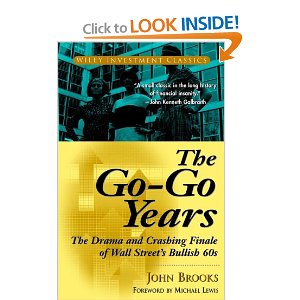 BULL (by Maggie Mahar). the March of Folly by Barbara Tuchman about the folly of empire (not finance related).
BULL (by Maggie Mahar). the March of Folly by Barbara Tuchman about the folly of empire (not finance related).
Try to find books on the worst trades, worst business deals done. Another good book is A Demon of Our Own Design. It’s just so much easier to see very bad businesses. And as with anything we anchor to what we know.


Its so valuable to broaden your exposure to what can go wrong, and to how very bright often brilliant people get it so wrong. Notice what Buffett said when he started hiring people in the last few years as investment officers. He didn’t talk about alpha, or high risk adjusted returns. No, what he focused on was finding someone who could think about situations (from a risk perspective) that hadn’t been seen before. He is focused on losing first and foremost and trying not to get caught out by blind spots.
In my experience the single best way to do this is to have as many prior examples as possible and to generalize them. Someone here noted the Michael Burry commencement address recently. In the introduction they said many brilliant people didn’t spot the real estate bubble. That is absolutely true. But the real question is why? And why didn’t they consider their assumptions and the total asymmetry of the outcome. They had all the tools and resources (capital, intelligence and computational) to do so. So why did they miss it? (Editor: This relates to what Greenblatt says in his first class: Why with all the MBAs, PHds, and CFAs can’t people beat the market?)
In particular, how was it missed by traders who have massive resources in terms of data, mining that data and analysing scenarios. In that regard A Demon of Our Own Design (the book)  gives a very good example. The author describes a formative experience @ Morgan Stanley during the height of the Portfolio Insurance, and how a young salesman saw how vols had been pushed close to 0 by all the portfolio hedgers indirect and direct activity. He simply looked at it — asked a friend what the contracts would be worth if the market dropped 20%, then said this is nuts, and put 50% or so of his net worth into OTM options of different tenor.
gives a very good example. The author describes a formative experience @ Morgan Stanley during the height of the Portfolio Insurance, and how a young salesman saw how vols had been pushed close to 0 by all the portfolio hedgers indirect and direct activity. He simply looked at it — asked a friend what the contracts would be worth if the market dropped 20%, then said this is nuts, and put 50% or so of his net worth into OTM options of different tenor.
A few months later the 1987 crash happened and the salesman had made several million dollars. He then retired to manage his own money. That may sound non repeatable. And in equity space those same things may never line up the same way. But if you channel Mark Twain and realise that history rhymes rather than repeating it is very valuable. The lesson from that was portfolio insurers no longer felt need to hedge. Portfolio insurance itself was just program selling on an option model delta basis. But rather than buying puts, they just sold. This behavior massively affected the price of vol, especially out of the money. It pushed it to insane levels.
Now, compare that to the recent crisis with ABS CDO’s. All an ABS CDO is tranche risk. Now, what is the attachment point (where you are at risk, for example for a super senior say 30%) is the strike for where losses occur. if it is a levered tranche, then that is where you sold an option on losses. in the super senior, its easy – you sold an option on losses over 30% of the pool for x basis points per annum. When you look @ it like this, then it looks very similar to the portfolio insurance debacle. I remember reading that book in 2006 I think and making the association. Then I took a closer look. If you looked all the way through to the underlying mortgages themselves and the properties that secured them – you could do simple back of the envelope analysis of what happened with housing down 1%, 10% and 20%, And the results were incredible. Anyone with 15 mins could have done that analysis. But they felt like they didn’t have to.
Likewise, if you read Hull’s book on options, he talked about Metallgesellschaft AG http://prmia.org/pdf/Case_Studies/MG_IIT.pdf. What killed them, in short, was a failure to understand the nature of the posting requirements of a derivative. The trade wasn’t even a bad one if they didn’t have to post. But they did, and they got killed. That was 1993, and it was huge news. Unmissable. And the cause was obvious. So how did investors in AIG stay in it once they found out about the posting requirements on derivatives contingent liability? It’s astounding to me. People will say unforeseeable, but they mean unlikely. and because they don’t study history or prior examples (except near past) they weight the likelihood of events often incredibly poorly.
So I would read a lot about those things first to protect yourself and give a good anchoring in what can go wrong and how. It also teaches you not to trust experts or names, but to think for yourself. Chanos has some good examples. Financial Shenanigans is another good book too.
Sorry if the above is a bit disorganised, but that is where I would start.
—–
Thanks again, Shaun for your wisdom.













